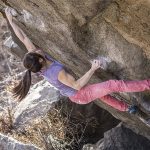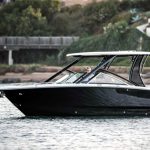Vail Resorts Inc. offset an EBITDA loss in the fiscal first quarter by topping Wall Street revenue and EPS estimates and posting solid season pass sales. Despite an impressive Q1, the Broomfield, CO-based ski resort operator only reiterated its annual guidance since the ski season has just begun and Vail’s primary earnings period is “still in front of us,” said CEO Rob Katz.
Highlights
- Net loss attributable to Vail Resorts, Inc. was $106.5 million for the first fiscal quarter of 2020 compared to a net loss attributable to Vail Resorts, Inc. of $107.8 million in the same period in the prior year. Fiscal 2020 first quarter net loss included the after-tax effect of acquisition and integration related expenses of approximately $6.8 million and approximately $1 million of unfavorable foreign exchange as a result of the U.S. dollar strengthening over the prior year compared to the Australian dollar. Fiscal 2019 first quarter net loss included the after-tax effect of acquisition and integration related expenses of approximately $4.9 million.
- Resort Reported EBITDA loss was $76.7 million for the first fiscal quarter of 2020, which included $9.0 million of acquisition and integration related expenses and approximately $2 million of unfavorable foreign exchange as a result of the U.S. dollar strengthening over the prior year compared to the Australian dollar. In the same period in the prior year, Resort Reported EBITDA loss was $72.5 million, which included $6.6 million of acquisition and integration related expenses.
- Season pass sales through December 2, 2019 for the upcoming 2019/2020 North American ski season increased approximately 17% in sales dollars (22% in units) as compared to the period in the prior year through December 3, 2018, including Military Pass sales and Peak Resorts pass sales in both periods. Pass sales are adjusted to eliminate the impact of foreign currency by applying an exchange rate of $0.75 between the Canadian dollar and U.S. dollar in both periods for Whistler Blackcomb pass sales.
- The company reaffirmed its guidance for fiscal year 2020 of $778 million to $818 million of Resort Reported EBITDA.
Unless otherwise noted, the commentary on results for the three months ended October 31, 2019 includes the results of our recent acquisitions prospectively from each respective acquisition date, including Peak Resorts (acquired in September 2019), Falls Creek and Hotham (acquired in April 2019), Triple Peaks (acquired in September 2018) and Ste*vens Pass (acquired in August 2018).
Commenting on the company’s fiscal 2020 first quarter results, Rob Katz, Chief Executive Officer, said, “Our first fiscal quarter historically operates at a loss, given that our North American mountain resorts are generally not open for ski season operations during the period. The quarter’s results are primarily driven by winter operating results from our Australian resorts and our North American resorts’ summer activities, dining, retail/rental and lodging operations, and administrative expenses. Our Australian resorts had strong performance during the quarter with another record year at Perisher (on an Australian dollar basis) and very strong results in our first year of operations at Falls Creek and Hotham. Our strong Epic Australia Pass sales, good conditions and the addition of the Leichhardt chairlift at Perisher supported our continued momentum in the Australian market. Our consolidated results from Perisher were negatively impacted by the strong U.S. dollar, which created an approximate $2 million Resort Reported EBITDA headwind from currency translation in the quarter relative to the prior year’s results. Whistler Blackcomb’s summer business performed very well with strong performance in its world class mountain biking operations and sightseeing, supported by the addition of the new Cloudraker Skybridge. Our U.S. Epic Discovery business continues to grow and generate strong financial returns. Our lodging business experienced mixed results, with continued success from our properties at Grand Teton Lodge company, partially offset by softer results at our Colorado properties, in part due to weaker group demand in comparison to the prior year period.”
Katz continued, “Our balance sheet at quarter end remains strong. We ended the quarter with $136.3 million of cash on hand and $1.9 billion of Net Debt. As part of the Peak Resorts acquisition, we expanded our existing term loan facility by approximately $336 million and assumed a portion of Peak Resorts’ debt. Our Net Debt was 2.8 times trailing twelve months Total Reported EBITDA, though it is important to note that this ratio only includes Peak Resorts’ results for the loss period between closing and quarter end and we expect that ratio to decline as we incorporate the full season of Peak Resorts’ results. I am also very pleased to announce that our Board of Directors has declared a quarterly cash dividend on Vail Resorts’ common stock. The quarterly dividend will be $1.76 per share of common stock and will be payable on January 9, 2020 to shareholders of record on December 26, 2019. Additionally, the company repurchased approximately $21.4 million of stock during the quarter at an average price of $224.28.”
Moving on to season pass results, Katz said, “As we approach the end of our selling period, season pass sales for the North American ski season are up approximately 17% in sales dollars through December 2, 2019 compared to the prior year period ended December 3, 2018, including Military Pass sales and Peak Resorts pass sales in both periods and adjusted to eliminate the impact of foreign currency by applying an exchange rate of $0.75 between the Canadian dollar and U.S. dollar in both periods for Whistler Blackcomb pass sales (unit sales were up approximately 22%). Excluding sales of Military Passes, season pass sales increased approximately 16% in sales dollars over the comparable prior year period (unit sales were up 22%). As we expected, growth in sales dollars was lower than our unit growth primarily from the inclusion of our Epic Day Pass products.
“We are very pleased to see strong sales growth in our season pass program that exceeded our expectations. We continue to see very strong growth in our Northeast markets, which are benefiting from the first full year of pass sales with unlimited access at Stowe, Okemo and Mount Sunapee, the recent addition of Peak Resorts, and the improved impact of the expanded guest data and insight we now have in that region. Our destination markets outside of the Northeast also saw very strong growth and continue to perform well through our enhanced ability to reach destination guests with our data-driven marketing and the introduction of Epic Day Pass. Our local markets continue to show solid overall growth, driven by favorable results among our local guests in the Whistler Blackcomb region, with particular strength in Seattle from the first full pass sales season with access to Stevens Pass. We are also seeing strong results from our Northern California and Utah guests. Sales in our Colorado local market were softer, with solid results in our Epic products, offset with declines in certain regional products, which was expected without Arapahoe Basin on those passes, but those declines will be more than offset by lower partnership payments.”
Katz continued, “The majority of our sales growth came from our Epic and Epic Local products where we saw solid growth in new pass holders and renewing pass holders, with less trade down to Epic Day Pass than we were expecting. Epic Day Pass was a strong success in its first year with an expanded product offering and was a significant contributor to our overall growth and exceeded our expectations, particularly in the Epic two and three day products. We believe this bodes very well for the long-term opportunity of Epic Day Pass, as we begin to highlight the incredible value to lower frequency guests. Importantly, the vast majority of Epic Day Pass sales came from new pass holders, with particular success in destination markets. Our military program delivered strong growth, with the program continuing to generate strong renewal rates while also adding new pass holders. We expect that the total number of guests on all advanced purchase passes this year will exceed 1.2 million (including all U.S., Canadian and Australian passes and Epic Day Pass), representing an incredible group of highly loyal and passionate guests.”
Katz continued, “Overall, lodging bookings for the season ahead are largely in-line with prior year bookings. Based on historical averages, around half of the bookings for the winter season have been made by this time, though it is important to note that our lodging bookings represent a small portion of the overall lodging inventory around our resorts. The early season experience at our resorts has been encouraging, with strong conditions across our Colorado, Tahoe and Northeastern resorts. Both Keystone and Vail have benefited from early snow and our recent snowmaking investments, which allowed Keystone to open on October 12 and Vail to open on November 15 and deliver a much improved experience to guests over Thanksgiving. Our resorts in Tahoe and Utah have opened with typical conditions for this time of year, and our Northeast resorts have started strong with certain resorts opening weeks earlier than in prior years.”
Operating Results
A more complete discussion of our operating results can be found within the Management’s Discussion and Analysis of Financial Condition and Results of Operations section of the company’s Form 10-Q for the first fiscal quarter ended October 31, 2019, which was filed today with the Securities and Exchange Commission. The following are segment highlights:
Mountain Segment
- Mountain segment net revenue increased $35.8 million, or 24.7%, to $180.8 million for the three months ended October 31, 2019 as compared to the same period in the prior year, which was primarily attributable to the incremental operations of Falls Creek and Hotham.
- Mountain Reported EBITDA loss was $80.0 million for the three months ended October 31, 2019, which represents an incremental loss of $3.6 million, or 4.7%, as compared to the Mountain Reported EBITDA loss for same period in prior year.
Lodging Segment
- Lodging segment net revenue (excluding payroll cost reimbursements) increased $8.3 million, or 11.7%, to $79.6 million for the three months ended October 31, 2019 as compared to the same period in the prior year, which was primarily attributable to the incremental operations of Triple Peaks and Peak Resorts.
- Lodging Reported EBITDA was $3.3 million for the three months ended October 31, 2019, which represents a decrease of $0.6 million, or 16.2%, as compared to the same period in the prior year, primarily due to an increase in expenses across our lodging properties, partially offset by the benefit of the incremental operations of Peak Resorts.
Resort – Combination of Mountain and Lodging Segments
- Resort net revenue was $263.6 million for the three months ended October 31, 2019, an increase of $43.7 million as compared to resort net revenue of $219.9 million for the same period in the prior year.
- Resort Reported EBITDA loss was $76.7 million for the three months ended October 31, 2019, which included $9.0 million of acquisition and integration related expenses; estimated incremental off-season losses of $4.6 million from Peak Resorts and $2.7 million from Triple Peaks and Stevens Pass for the respective periods that those resorts were not owned in the prior year; and approximately $2 million of unfavorability from currency translation, which the company calculated on a constant currency basis by applying current period foreign exchange rates to the prior period results. In the same period in the prior year, Resort Reported EBITDA loss was $72.5 million, which included $6.6 million of acquisition and integration related expenses.
Total Performance
- Total net revenue increased $47.8 million, or 21.7%, to $267.8 million for the three months ended October 31, 2019 as compared to the same period in the prior year.
- Net loss attributable to Vail Resorts, Inc. was $106.5 million, or a loss of $2.64 per diluted share, for the first quarter of fiscal 2020 compared to a net loss attributable to Vail Resorts, Inc. of $107.8 million, or a loss of $2.66 per diluted share, in the first quarter of fiscal 2019. Fiscal 2020 first quarter net loss included the after-tax effect of acquisition and integration related expenses of approximately $6.8 million; estimated incremental off-season losses of approximately $4.2 million from Peak Resorts and approximately $4.5 million from Triple Peaks and Stevens Pass for the respective periods that those resorts were not owned in the prior year; and approximately $1 million of unfavorability from currency translation, which the company calculated on a constant currency basis by applying current period foreign exchange rates to the prior period results. Fiscal 2019 first quarter net loss included the after-tax effect of acquisition and integration related expenses of $4.9 million.
Return of Capital
The company declared a quarterly cash dividend of $1.76 per share of Vail Resorts common stock that will be payable on January 9, 2020 to shareholders of record on December 26, 2019. Additionally, a Canadian dollar equivalent dividend on the exchangeable shares of Whistler Blackcomb Holdings Inc. will be payable on January 9, 2020 to shareholders of record on December 26, 2019. The exchangeable shares were issued to certain Canadian persons in connection with our acquisition of Whistler Blackcomb Holdings Inc. Additionally, in the first quarter of fiscal 2020, the company repurchased 95,618 shares at an average price of $224.28 for a total of approximately $21.4 million.
Capital Improvements
Commenting on the company’s capital investments for the 2019/2020 North American winter season, Katz said, “We are thrilled to welcome guests to all of our resorts as the 2019/2020 North American ski season kicks off with several transformational enhancements to the guest experience at our resorts.
“In Colorado, we have made significant investments in our snowmaking systems that have transformed the early-season terrain experience at Vail, Keystone and Beaver Creek. As a result of these investments, Keystone experienced its earliest opening in more than 20 years, and Vail opened earlier than usual with an improved terrain offering available at opening, elevating the experience for our guests. At Park City, we transformed the Tombstone Express area with a new permanent Tombstone BBQ restaurant and the new four-person Over and Out lift that provides a quicker, more direct route for skiers and riders to access Canyons village from the center of the resort. In addition, we completed a full renovation of the Beaver Creek children’s ski school facilities and improvements to the Peak 8 base area at Breckenridge with new ski school and childcare facilities, as well as an improved ticket and retail and rental experience.
“We remain highly focused on investments that will substantially improve the guest experience across our resorts and implemented a new mobile lift ticket express fulfillment technology that eliminates the ticket window for guests who purchase their tickets in advance. We also completed one of the final stages of our point of sale modernization project and invested in technology to automate our data-driven marketing efforts.
“We completed significant one-time investments across the acquired resorts of Crested Butte, Okemo and Stevens Pass, which included replacing and upgrading the Daisy and Brooks lifts at Stevens Pass and the Teocalli lift at Crested Butte, as well as on-mountain restaurant upgrades at Okemo.”
Regarding calendar year 2020 capital expenditures, Katz said, “We remain committed to reinvesting in our resorts, creating an experience of a lifetime for our guests and generating strong returns for our shareholders. We will announce our complete capital plan for calendar year 2020 in March 2020, but we are pleased to announce several signature investments planned for the 2020/2021 North American ski season.”
Katz continued, “We are excited to announce a 250 acre lift-served terrain expansion in the signature McCoy Park area of Beaver Creek. This new lift accessed beginner and intermediate bowl experience is a rare opportunity to expand with highly accessible terrain in one of the most idyllic settings in Colorado and will further differentiate the high-end, family focused experience at Beaver Creek.
“At Breckenridge, we plan to install a new four-person high speed lift to serve the popular Peak 7. This additional lift will further enhance the guest experience at the most visited resort in the U.S. and will significantly increase guest access and circulation for the intermediate terrain on Peaks 6 and 7. Subject to governmental approvals, at Keystone we plan to replace the four-person Peru lift with a six-person high speed chairlift in order to increase capacity out of a key base area of the resort and improve guest access, circulation and experience at one of the top performing resorts in the U.S.
“At Whistler Blackcomb, we intend to significantly increase the seating capacity at the Rendezvous Lodge Restaurant on Blackcomb Mountain. The expansion will add 250 seats at a critical on-mountain restaurant, further enhancing the experience at North America’s largest resort.
“Our capital plan includes several key investments that will continue to further our company-wide data driven approach. We are now in the second phase of implementing our automated digital marketing platform that will allow us to aggregate a more holistic view of the guest that will drive improvements in personalization and engagement across all lines of business, including ski school and rentals. We will also be investing to completely revamp and upgrade our digital ski rental online platforms to provide a more seamless advanced purchasing process and to allow more dynamic pricing and discounting to broaden access during off-peak times. Finally, we will be launching a completely revamped EpicMix mobile app that will offer new functionality and an improved user experience.
“We will continue to invest in corporate infrastructure and technology to improve our scalability and efficiency as we work to optimize our processes, business analytics and cost discipline across the network. This will include the implementation of an automated workforce planning system to optimize our labor scheduling and improved financial systems to enhance business analytics.
“For the recently acquired resorts of Crested Butte, Okemo and Stevens Pass, we are planning to complete the second and final phase of a two-year, $35 million investment program. Subject to governmental approvals, we plan to complete a transformational investment at Okemo including upgrading the Quantum lift from a four-person to a six-person high speed chairlift, relocating the existing four-person Quantum lift to replace the Green Ridge three-person fixed-grip chairlift and improving the base area experience through a renovation of the Base 68 restaurant, expansion and renovation of the children’s ski school facility and enhancement of the guest arrival experience.
“We plan to spend approximately $24 million on integration activities primarily related to Peak Resorts.
“Our capital plan for calendar 2020 includes one-time real estate investments of approximately $3 million, which are related to and funded by land sales completed in calendar 2019 with third party developers at Keystone (One River Run site) and Breckenridge (East Peak 8 site). While we expect these projects to occur in calendar 2020, these investments remain subject to municipal approvals of those development projects, creating timing uncertainty.
“Our capital plan for calendar 2020 will be approximately $155 million to $160 million, excluding one-time items associated with integrations, the one-time Triple Peaks and Stevens Pass transformation plan, one-time Peak Resorts capital improvements, real estate related capital and $4 million of reimbursable investments associated with insurance recoveries that we had originally expected to occur in calendar 2019. Including these one-time items, our total capital plan will be approximately $210 million to $215 million. We will be providing further detail on our calendar year 2020 capital plan in March 2020.”
Outlook
Commenting on fiscal 2020 guidance, Katz continued, “Given our first quarter results and the indicators we are seeing for the upcoming season, we are reiterating our Resort Reported EBITDA guidance for fiscal 2020 that was included in our September earnings release, based on the assumptions incorporated at that time, including foreign currency exchange rates. While pass sales results to date have been encouraging, it is important to remember that the North American ski season has just begun, with our primary earnings period still in front of us.”















